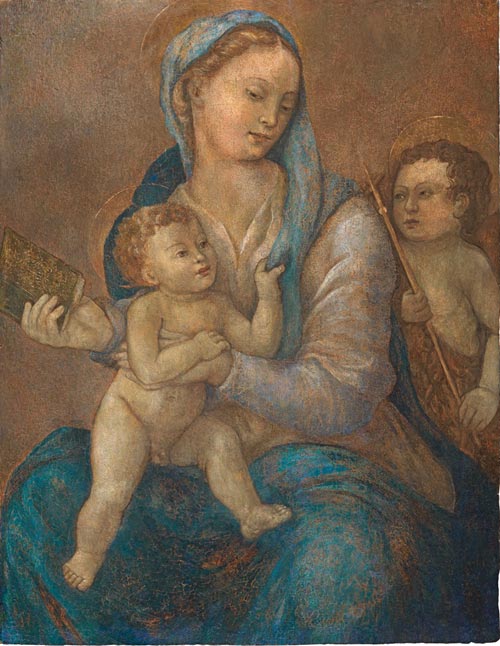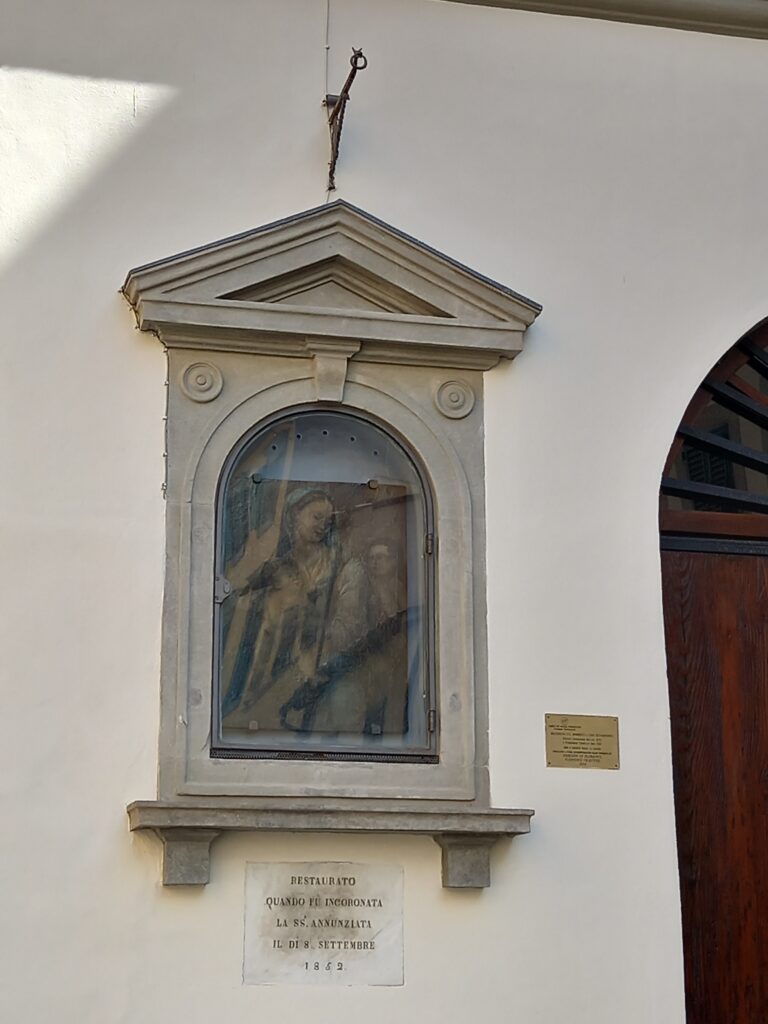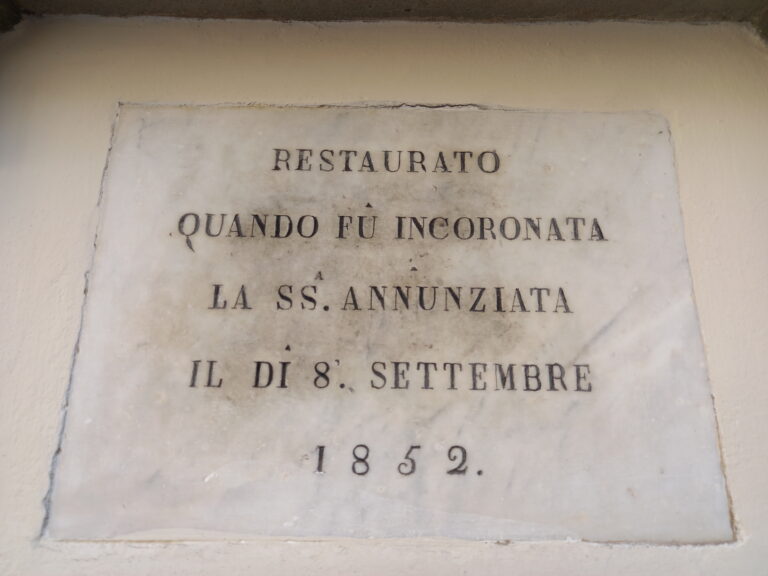Tabernacles of Florence
Piazza Piattellina corner of Piazza del Carmine
THE TABERNACLE
Madonna col Bambino
The composition depicts the seated Madonna supporting the Child standing on her lap with one hand and holding a book with the other. The infant Jesus grasps part of her veil, as if seeking her breast; on the right faces San Giovannino with a reed cross absorbed in observing the Mother and Son. The formal characteristics of the work (despite the almost total remake) can be glimpsed fully inspired in the tradition of 16th-century paintings, between the Classical tendency of the Sartesque period and early evidence of Mannerist tendencies.
Tabernacle
The panel painting is set in a sandstone aedicule with a triangular tympanum and ribbed compartment of neocentury forms, located on the outer western wall of the former Carmelite convent, now owned by the municipality. At the bottom, an inscription engraved on a marble slab informs that it was restored on September 8, 1852, the day dedicated to the nativity of Mary and the coronation of the venerated image of the “Santissima Annunziata” (the “Most Holy Annunciation”).
THE STREET
PIAZZA PIATTELLINA
In the Renaissance, the square was called "degli Orpellai" because it was home to the workshops of artisans who specialized in working copper into very thin sheets, also known as similoro, which were used to decorate leather. The current name comes from the presence in the square of the market that sold dishes and kitchenware and was proposed in the 19th century. The work described so far is located at the corner of Carmine Square, which was created in 1330 to allow crowds to attend the sermons of the Carmelites, who owned the basilica of Santa Maria del Carmine in front of it, from which it took its name.
AUTHOR
Ferruccio Vannoni
(Siena, 1881 - Florence, 1965) Schoolboy of the famous forger and imitator of ancient paintings Igino Federico Ioni, made famous by his fictionalized biography, admittedly somewhat mockingly titled, "Memoirs of a Painter of Ancient Paintings," he too continued along the lines of his master, copying and drawing inspiration from paintings in the Sienese tradition, particularly from the 14th- and 15th-century period.
The artist
(Siena, 1881 - Florence, 1965) He was a skilled decorator, gilder and restorer, employed by such well-known Florentine antiquarians as Luigi Bellini, Salvatore Romano and Enrico Frascione, as well as by the New York collector Duveen. He was also called upon to restore and gild frames in the National Gallery in London and the Louvre Museum.
Curiosity
The original painting was made by a 16th-century Florentine painter but, as ascertained during the restoration, at least three-quarters of it was repainted by Vannoni. Through a graphic scheme it was possible to identify what was left of the original painting, namely, a few strokes of the background, the lower part of the Madonna's robe, a few fragments of her face and that of San Giovannino, where the figure of the Child had been completely reworked.
OTHER INFORMATION
Info
AMICI DEI MUSEI FIORENTINI ODV - COMITATO PER IL DECORO E IL RESTAURO DEI TABERNACOLI - File by Bruno Santi - Restoration: Studio "Atelier" - Restored by Friends of Florence Foundation, Florence Chapter (2016)
Tabernacle owned by the City of Florence
Tabernacle owned by the City of Florence
PICTURES

Fresco: Madonna col Bambino
Piazza Piattellina corner of Piazza del Carmine

Tabernacle
Piazza Piattellina corner of Piazza del Carmine

Plaque
Piazza Piattellina corner of Piazza del Carmine
